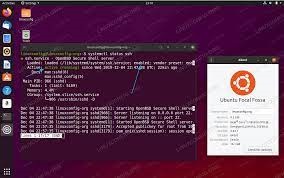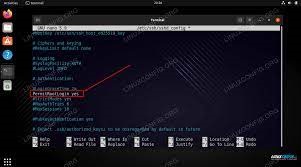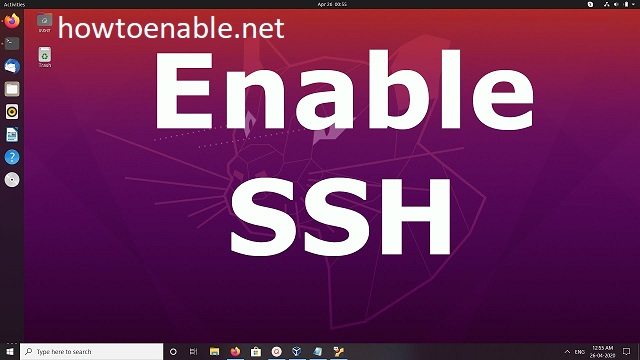How to Enable SSH on Ubuntu 20.04
SSH, or Secure Shell, is a network protocol that allows you to connect to other systems securely. Its benefits include allowing you to perform administrative tasks from remote locations, as well as securely transfer files. Using SSH is not allowed by default in Ubuntu, but enabling SSH is a quick and easy process. Enable SSH On Ubuntu 20.04
The first step is to enable SSH in your local system. This can be done with the following command. You will need to give a username and password. Next, you need to change the port from 22 to something that is more secure. By default, the SSH port is 22, but you can change it to a number that you prefer Google.

The sshd configuration file contains many directives to control the server’s communication settings. This file is found in /etc/ssh/sshd_confirm. You should make sure that you protect the file against writing. After the installation is complete, you can use the same configuration file for any other computers in your network.
How To Configuring Open SSH:
Alternatively, you can use the /usr/sbin/nologin shell to configure non-interactive logins for certain user accounts. This shell also allows you to specify more than one user and to restrict access to certain directories.
First, you need to enable SSH on your Ubuntu system. Then, open the command prompt. Enter the command systemctl status is. The output should be Active. If the command does not return an active status, you must enable it manually.
How To Setting Up An SSH Server:
The sshd configuration file contains several directives that control the server. It also includes options for security. You can restrict access to your machine to certain users or IP addresses and restrict access to machine-to-machine and user-to-user sessions. The configuration file is located in /etc/ssh/sshd_confirm. It is recommended that you set up the ssh configuration file in a secure location. This way, you won’t have to worry about accidentally deleting or modifying the file.

Besides enabling SSH, you also need to install the public key for the SSH-key-based authentication. The easiest way to copy the key is by running ssh-copy-id, but you can also manually copy it.
How To Configuring An SSH Client:
Before you can configure an SSH client on Ubuntu, you need to install the SSH server. This server can be either your local machine or another machine in your network. Open a terminal window and type in the commands below. You may want to update your system first before installing new software.
The first step is to change the default port to a secure one. This port will prevent automated attacks and minimize the risk of automated hacking attempts. Next, you can specify the ciphers to be used in SSH connections. You can get more information about configuring SSH servers from the official SSH manual website.
How To Setting Up Port Forwarding:
Once you have the correct settings for a client, you can use authentication keys to connect pass wordlessly. You will need a private key file to use authentication keys.
Setting up port forwarding on Ubuntu is a common way to connect to a remote server. Port forwarding allows you to connect to an application on a remote server while allowing your local application to access the Internet. You can use the ssh command to forward ports, such as 22, in order to make it easier to connect to a remote machine. You can also specify options, such as -L for defining the local port. This option also allows you to compress data, which will improve the speed of text-based data. You can also specify -F for running the ssh command in the background environment.
Go To Setting:
- Open the terminal application for the Ubuntu desktop.
- For a remote Ubuntu server, you need to use BMC or KVM or IPMI to access the console.
- Enter the command: $ sudo apt-get install openssh-server.
- Enable the ssh service by typing: $ sudo systemctl enable ssh.
SSH is a popular networking protocol that lets you securely connect to remote computers. It also allows you to send and receive files. While this method is convenient for home computers, it can be problematic for servers behind routers. Using port forwarding is an important part of setting up SSH on Ubuntu.

Leave a Reply